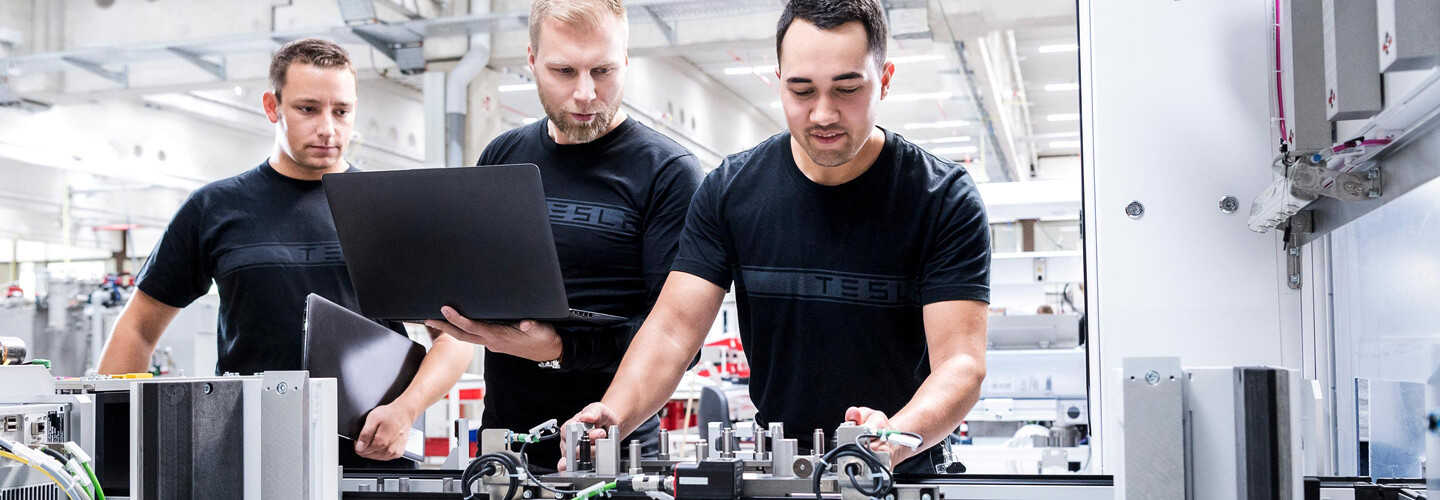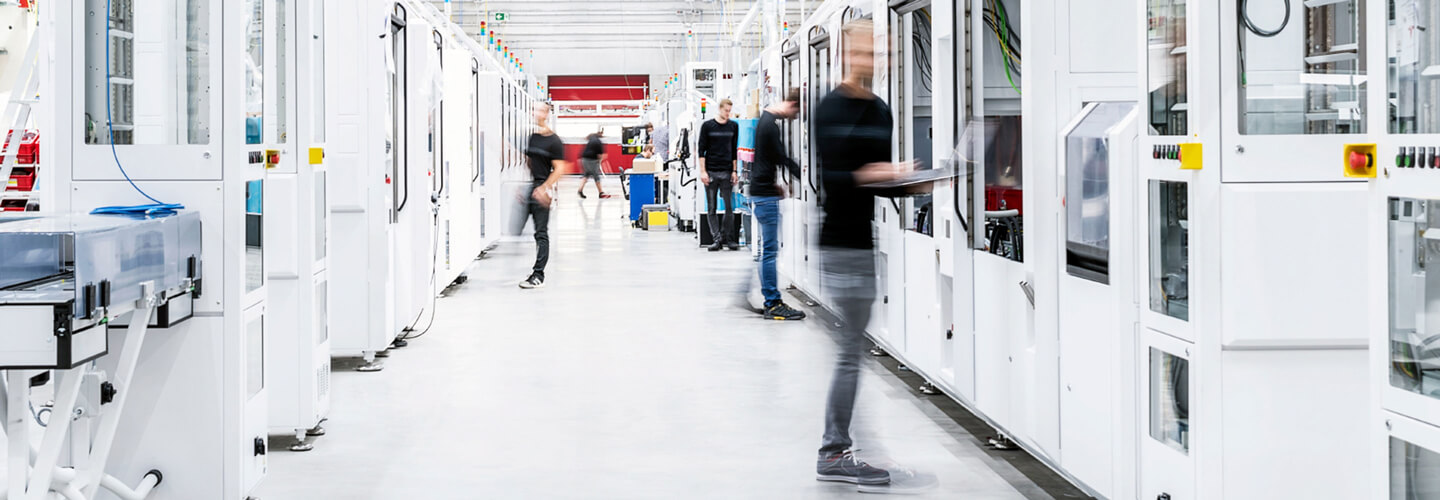Policy Statement on Human Rights and Environmental Strategy
I. Applicability
This Policy Statement is issued by the undersigned Tesla Automation GmbH in accordance with section 3 (1) No. 4 in
combination with section 6 (2) with reference to its requirements of the 2021 German Supply Chain Due Diligence Act
(SCDDA).
II. Tesla’s Commitment to globally recognized Human Rights
Tesla’s mission is to “Accelerate the World’s Transition to Sustainable Energy”. Accordingly, human rights and
environmental protection issues are held in the highest regard. The expectation is that this mission is upheld not
just in Tesla’s own operations but throughout the entire value chain. Tesla and Tesla Automation uphold this
commitment through its policies, including the Global Human Rights policy and the Tesla Supplier Code of Conduct,
which embody its commitment to respect, embed and uphold the values they represent throughout the business and
supply chain. Tesla as well as Tesla Automation look to globally recognized standards, including the United Nations
Guiding Principles on Business and Human Rights as guidance for its policies and business practices.
The companies recognize that policies alone are not sufficient for enforcing expectations. Thus, performing due
diligence on salient risks at its own operations and those of suppliers is a critical component of creating a more
sustainable future. For the supply chain, Tesla follows the Organization for Economic Cooperation and Development
(OECD) “Guidelines for Due Diligence for Responsible Business Conduct” and “OECD Due Diligence Guidance for
Responsible Supply Chains of Minerals from Conflict-Affected and High-Risk Areas” when identifying, mitigating and
reporting risks within the value chain.
III. Corporate Due Diligences and Procedures
1. Responsibilities
To oversee compliance with the SCDDA, Tesla Automation has formed a committee with members from Supply Chain, HR,
EHS, Compliance and Legal. This committee is responsible for the project implementation and ensures all due
diligence requirements under the SCDDA are operationalized and timely fulfilled. The committee, on at least an
annual basis, reports to the Tesla Automation Executive Management and the appointed Human Rights Officer (HRO) on
any identified risks and efforts to prevent, mitigate and remediate any associated harm.
2. Risk Management System
A multistage process has been implemented at Tesla Automation to detect and address risks within the supply chain and
company business operations. The purpose of this process is to systematically identify potential adverse human
rights and environmental impacts of both Tesla’s own actions and the activities of suppliers, and to take necessary
remedial measures where required.
Tesla’s supply chain management system is embedded into sourcing practices and is applicable to the Tesla Automation.
The responsible sourcing teams are part of the supply chain organization, giving them an in-depth understanding of
sourcing decisions, and allowing respect for human rights and the environment to be incorporated into the process.
Further details on individual components of the related management systems are detailed below.
3. Risk Analysis
For human rights and environmental risks, Tesla Automation as well as Tesla use a risk-based approach to supplier due
diligence. The goal is to identify violation risks and work to mitigate them in operations and supply chains. The
supply chain organization conducts risk analyses of suppliers where there are direct contractual relationships as
well as those further upstream within the supply chain. These efforts to understand risk include, but are not
limited to, looking at the industry in which suppliers are operating and the location of their facilities or source
of workforce. When weighing and prioritizing risks, Tesla considers the severity of potential violations, the
potential reversibility of the violations and the probability of occurrence and the relationship with and influence
over the supplier.
Internally, Tesla Automation continuously assesses its own operations for areas where there are specific risks of
human rights and environmental violations. They seek to remedy adverse impacts, track and measure progress, and
report findings. For Tesla Automation, findings are reported to Executive Management and the HRO as described above.
The risk analysis forms the basis for the identification of appropriate objectives, preventive measures, and
remedial actions.
4. Identified Risks
Tesla has identified the following potential supply chain risks via engagement with its procurement organization,
multi-stakeholder and non-governmental organizations, industry and investor groups. These risks are common to
companies operating within the automotive or technology industries. The below lists are not exhaustive of the
potential violations of environmental or human rights requirements that may occur in the supply chain but are those
for which the likelihood or severity of impact are highest.
a) Salient Human Rights Risks
- Fair working conditions, including freely chosen employment place
- Occupational health and safety
- Co-existence between industrial and artisanal mining operations
- Violence and conflicts
b) Salient Environmental Risks
- Water use and pollution
- Air pollution
- Energy use and GHG emissions reduction
- Hazardous substance management
- Protection of forests and biodiversity
- Waste management, including tailings
- Water quality in waterways affected by operations
In addition, the Tesla Automation identifies and ranks risks during its periodic risk assessments conducted per the
SCDDA.
5. Preventive Measures
Tesla has integrated its human rights strategy into all relevant business areas and established appropriate measures
to ensure compliance. Additionally, Tesla has published guidelines and statements that are applicable to the Tesla
Automation to promote sustainability along the value chain. These documents outline specific actions and objectives
and serve as a mandatory framework and are available to all employees via an employee intranet site.
To ensure employee awareness of Tesla’s corporate values and principles, the Companies provide trainings and
information sessions. From day one in New Hire Orientation, employees learn about the Companies’ respectful
workplace. Trainings on Business Ethics and Anti-Harassment are completed on an ongoing basis. Additionally,
employees are exposed to our Diversity, Equity and Inclusion (DEI) principles and are encouraged to join Employee
Resource Groups.
To prevent the potential of human rights and environmental related risks in their supply chain, the Companies take
multiple steps. These include, but are not limited to:
- contractually binding suppliers to a Responsible Sourcing Policy, Global Human Rights Policy (RSGHRP) and
Supplier Code of Conduct (SSC);
- providing trainings to the supply chain organization on topics related to human rights and environmental risks
and how they can recognize and mitigate those risks; and
- on a risk basis, audit suppliers through on-site, third-party audits to international recognized audit protocols
on issues including Labor, Environment, Health & Safety, Ethics and Responsible Sourcing.
The RSGHRP and the SSC are publicly available on the Tesla internet site at www.tesla.com.
6. Remedial Actions
In the event of credible evidence or suspicion of possible human rights violations within their business operations,
the Companies expeditiously undertake measures to verify and terminate any violation.
In the event of external violations, the response is based on the severity of a violation, and the relationship with
that supplier. The Companies work to minimize the impact of the violation and prevent any further violations. When a
violation occurs and the Companies do not have a direct business relationship, i.e. when it concerns indirect
suppliers, the Companies will use their existing relationships with downstream suppliers and industry groups, which
may include peer companies, to apply leverage for the violation to be remediated. Where direct engagement does not
lead to meaningful progress and/or where there is insufficient evidence or lack of viability for the immediate and
appropriate mitigation of serious abuses, the Companies consider all appropriate forms of leverage, including the
reduction and/or termination of supply agreement and/or suspension or discontinued engagement with suppliers.
7. Complaint Procedure
Tesla maintains a complaint platform (Tesla Integrity Line) that is also used by Tesla Automation. The Integrity Line
is accessible by all Companies’ employees, the employees of suppliers and others within or even outside the value
chain. Information on accessing the, or reporting through, the Integrity Line can be found at https://ts.la/integrityline.
Complaints may also be sent directly to compliance@tesla.com. The
Integrity Line is available in approximately 60 languages and is accessible 24 hours a day, 7 days a week, allowing
anyone to report concerns anonymously and without fear of retaliation. The Companies take all concerns raised in
good faith seriously. All matters are promptly and appropriately investigated by the appropriate team of
professionals. Concerns related to responsible sourcing and human rights are directed to Tesla’s Responsible
Sourcing team. Tesla’s aim is to acknowledge concerns within 72 hours and resolve cases within 30 days. Some cases
may require additional time.
8. Due Diligence for Indirect Suppliers
When performing due diligence on our extended, or upstream supply chain for which the Companies may not have a
contractual relationship, a risk-based approach is also taken. The Companies focus their efforts in areas considered
to have the highest likelihood of an occurrence of a violation, or in areas where the violation would be most
severe. Where necessary, the due diligence efforts extend through the entire value chain, to the point of materials
extraction, and to enterprises involved with the transport of materials.
9. Documenting and Reporting
Tesla maintains, and periodically reviews and updates, documents and procedures related to human rights and
environmental due diligence. Tesla reports on an annual basis on these efforts through regulatory disclosures in
Germany, Australia, the United Kingdom, and the United States of America, as well as through the annual Impact
Report.
Tesla will publish a yearly report, submitted to the Federal Office for Economic Affairs and Export Control (BAFA),
starting from the first quarter of 2024. The Tesla Automation will retain relevant documents and comply with the
SCDDA reporting requirements.
10. Stakeholder Engagement
Assessing and addressing human rights risks is an ongoing effort that involves engaging with internal and external
stakeholders. To help ensure the relevant stakeholders are aware of potential human rights and environmental risks,
Tesla maintains a specialized Responsible Sourcing team within its Supply Chain Organization to lead due diligence
efforts. Tesla also maintains an internal cross-functional Responsible Sourcing Steering Committee composed of Tesla
leadership from Supply Chain, Internal Audit, Human Resources, Investor Relations, EHS, Public Policy & Business
Development, Sustainability, Compliance and Legal, oversees these due diligence efforts and potential risks within
our own operations and supply chain.
IV. Final Words
The Tesla Automation will comply with all aspects of the law. The Companies are committed to upholding and respecting
human rights worldwide and complying with all related legal requirements related to their own operations and supply
chain as well as in regard to the environment.
Approved and Adopted:
Tesla Automation GmbH







